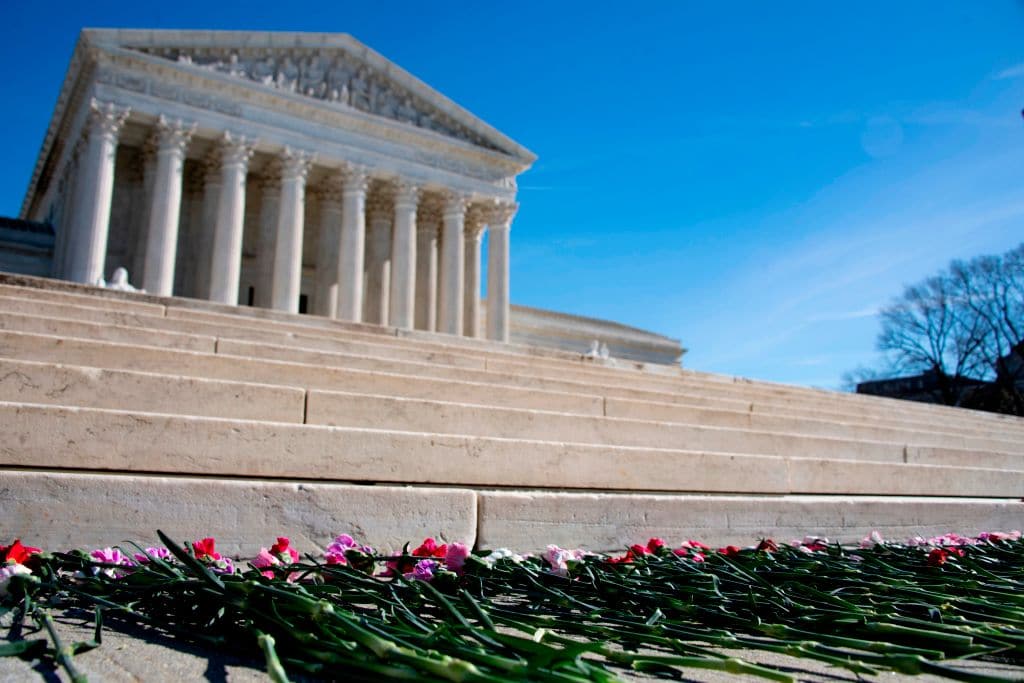By Rob Sacks, Editor at LinkedIn News — ChatGPT is forcing higher education to consider the potential consequences of artificial intelligence on the admissions essay, writes The New York Times. The technology could lead to plagiarism or create doubt about whether the students’ writing is an accurate reflection of their true selves. But, AI could […]

UNITED NATIONS, Reporting by Michelle Nichols (Reuters) – The United Nations Security Council voted on Thursday to extend a long-running peacekeeping mission in Lebanon for another year after a compromise was reached between France and the United States on language about the freedom of movement of U.N. troops. The U.N. Interim Force in Lebanon (UNIFIL) – established in 1978 – patrols Lebanon’s southern border with Israel. The mandate for the operation is renewed annually, and its current authorization was due to expire on Thursday. The French-drafted text was adopted with 13 votes in favor and abstentions by Russia and China. A planned Wednesday vote was delayed as France, the United States and the United Arab Emirates argued over language on U.N. freedom of movement. France kept language in the resolution that spells out that peacekeepers should coordinate with the Lebanese government.
But in a compromise with the U.S. and the UAE, France added back in text from last year’s council resolution – which it had deleted – that demands all parties allow “announced and unannounced patrols” by U.N. troops. “The ability of the UNIFIL personnel to carry out their responsibilities, independent of any restrictions, is essential,” U.S. Ambassador to the United Nations, Linda Thomas-Greenfield, told the council. “And we’ve had long-standing concerns regarding the actions by some actors to obstruct the mission’s freedom of movement,” she said. “The resolution adopted today includes language strongly reaffirming UNIFIL’s full freedom of movement.”
By Alessandra Riemer, Editor at LinkedIn News — Home prices have risen for a fifth consecutive month amid an increasingly tight housing market, driven by low inventory. The cost of buying a home in June was up 0.7% from the month prior, according to new data out from S&P CoreLogic Case-Shiller. While the the average […]

by Matt Asay — infoworld — By now you’ve used a generative AI (GenAI) tool like ChatGPT to build an application, author a grant proposal, or write all those employee reviews you’d been putting off. If you’ve done any of these things or simply played around with asking a large language model (LLM) questions, you’ve no doubt been impressed by just how well GenAI tools can mimic human output. You’ve also no doubt recognized that they’re not perfect. Indeed, for all their promise, GenAI tools such as ChatGPT or GitHub Copilot still need experienced human input to create the prompts that guide them, as well as to review their results. This won’t change anytime soon. In fact, generative AI is big not so much for all the exam papers, legal briefs, or software applications it may write, but because it has heightened the importance of AI more generally. Once all the hype around GenAI fades—and it will—we’ll be left with increased investments in deep learning and machine learning, which may be GenAI’s biggest contribution to AI.
To the person with a GenAI hammer
It’s hard not to get excited about generative AI. On the software developer side, it promises to remove all sorts of drudgery from our work while enabling us to focus on higher-value coding. Most developers are still just lightly experimenting with GenAI coding tools like AWS CodeWhisperer, but others like Datasette founder Simon Willison have gone deep and discovered “enormous leaps ahead in productivity and in the ambition of the kinds of projects that you take on.” One reason Willison is able to gain so much from GenAI is his experience: He can use tools like GitHub Copilot to generate 80% of what he needs, and he is savvy enough to know where the tool’s output is usable and where he needs to write the remaining 20%. Most lack his level of experience and expertise and may need to be less ambitious with their use of GenAI. We go through a similar hype cycle for each wave of AI, and each time we have to learn to sift realistic hope from overreaching hype. Take machine learning, for example. When machine learning first arrived, data scientists applied it to everything, even when there were far simpler tools. As data scientist Noah Lorang once argued, “There is a very small subset of business problems that are best solved by machine learning; most of them just need good data and an understanding of what it means.” In other words, however cool it might make you look to develop algorithms to find patterns in petabytes of data, simple math or SQL queries are often a smarter approach.

By: Lyle Daly — fool.com/the-ascent — The top 10% of household incomes starts at $191,406, the top 5% at $290,406, and the top 1% at $867,436. Those are the nationwide numbers, but they also vary considerably if you account for other factors, such as age or location. Income is a key part of personal finance, but it’s not all that matters. Incomes vary quite a bit throughout the United States. The median income was $69,717 in 2021, but households in the top 10% and above make significantly more. It’s interesting to see how much money these households make — and how your own income compares. Of Dollars and Data released income research earlier this year with the thresholds for the top 10%, 5%, and 1% of household incomes, based on data from the 2019 Survey of Consumer Finances.
The 2019 survey is the most recent that’s currently available. Although it’s a few years old, the median inflation-adjusted income of the top 25% of households increased by just 2% from 2019 to 2022. So, the income data still provides a fairly accurate idea of how much the richest households make.
Incomes of the top 10%, 5%, and 1%
Here are the household income thresholds for the top 10%, 5%, and 1%:
Top 10%: $191,406
Top 5%: $290,164
Top 1%: $867,436
As you can see, you need an income nearly three times the national median to crack the top 10%. It takes another $100,000 on top of that to make the top 5%. And the 1% is making beaucoup bucks.

By Nadim El Kak — Al Jazeera — Beirut, Lebanon – It’s August 2022 and Lebanon are two points up on the Philippines with 18 seconds left in the game at a packed Nouhad Naufal Stadium in a Beirut suburb, when the ball spills out to Wael Arakji on the left – giving him the chance to sink a game-sealing three-pointer. If the shot goes in, it will not only guarantee the win but will also help secure Lebanon’s ticket to the 2023 FIBA World Cup taking place this August and September. Unfazed by the pressure of 8,000 roaring fans and an onrushing Jordan Clarkson looking to block, the 2022 FIBA Asia Cup Most Valuable Player (MVP) makes the shot – effectively guaranteeing the small Arab country its place in the World Cup for the fourth time in its history. Their qualification was confirmed after an easy win against India a few days later. Fans took to social media after the Philippines game to express their elation. “I was watching the game while at the office and couldn’t control my screams at every play,” Abed wrote in a Facebook group of 45,000 Lebanese basketball fans. “A lot of coworkers were confused and asked me what I get from all of this. There’s really no explaining our relationship with this sport.” Responding to Abed’s words, Sleiman takes a stab at the coworkers’ question in the comments: “What do we get from it? Thanks to this game we can experience pride in something called Lebanon rather than in parties, sects or politics.”
Being first isn’t everything in the NBA draft Indeed, basketball has brought back much-needed joy, solidarity and hope to a country still ailing from the aftermath of a foiled uprising, the catastrophic Beirut port explosion, and a continuing financial collapse. A few months before that, Lebanon lifted the 2022 Arab Championship trophy in front of a mostly Lebanese crowd in Dubai, mounting a spectacular fourth-quarter comeback to defeat reigning African champions Tunisia in the final. Experts say these successes have a profound effect on Lebanese society. “Sports are incredibly powerful because they’re a product that’s full of emotions – it’s a form of entertainment that meshes national identity with personal dreams and passions, regardless of political context,” Nadim Nassif, a scholar of sports history and governance based at Notre Dame University in Lebanon, told Al Jazeera. “Basketball appeals to the Lebanese because the country is internationally competitive in [one of the] most popular sports in the world.”
By MEE staff — Popular Lebanese comedian Nour Hajjar was detained on 25 August after posting a sketch online where he talks about the deteriorating economic conditions in the country. According to local media platform Megaphone News, the comedian spoke about Lebanese army personnel being forced to take on multiple side jobs such as delivery […]
by fortune.com — Coryanne Hicks –– ChatGPT is changing the way people live and work. From teachers to cybercriminals, it seems everyone is jumping on the artificial intelligence (AI) bandwagon. This is only to be expected when it can answer questions faster than any human and save you the trouble of scouring countless Google search […]

by by theguardian.com — Donald Trump has tweeted for the first time since 2021, posting the mugshot from his booking at Fulton county jail in Georgia on charges of election interference earlier on Thursday. The former president returned to the social media site, now known as X, with a post linking to his website and featuring the words “Election interference! Never surrender!” following his surrender at Fulton County jail on racketeering and conspiracy charges over his efforts to overturn the 2020 election results in Georgia. Trump has previously said he would stick with his new platform Truth Social. He reportedly signed an 18-month exclusivity agreement to post on Truth Social when it launched, which expired in late June.
Trump’s jail spectacle is historic, but it won’t harm him politically It has been Trump’s main source of direct communication with his followers since he began posting on the app regularly in May. The former president has used it to promote his allies, criticise his opponents and defend his reputation amid legal scrutiny from state, congressional and federal investigators. Trump had 6.4m followers on Truth Social as of Thursday. He still has more than 88m Twitter followers despite being banned from the platform following the 6 January 2021 attack on Congress by his supporters, amid the risk of further incitement of violence. On 19 November the San Francisco-based app reversed the ban under billionaire Elon Musk, the self-proclaimed “free speech absolutist” who bought Twitter last year. Musk restored the former president’s account after running a poll that received more than 15m votes and just narrowly won at nearly 52%. Despite the account being restored, Trump did not tweet until Thursday. He has previously used Twitter and other social media platforms to make false claims that his defeat in the 2020 election was due to widespread voter fraud and to share other conspiracy theories.
by naharnet –– The Maronite church’s dismay over the French policy towards Lebanon was clearly reflected in the sermon of Patriarch Beshara al-Rahi on Sunday, when he criticized the questions addressed by French envoy Jean-Yves Le Drian to Lebanon’s MPs. In remarks to ad-Diyar newspaper, Bkirki sources confirmed the dismay. “France has always stood by […]



